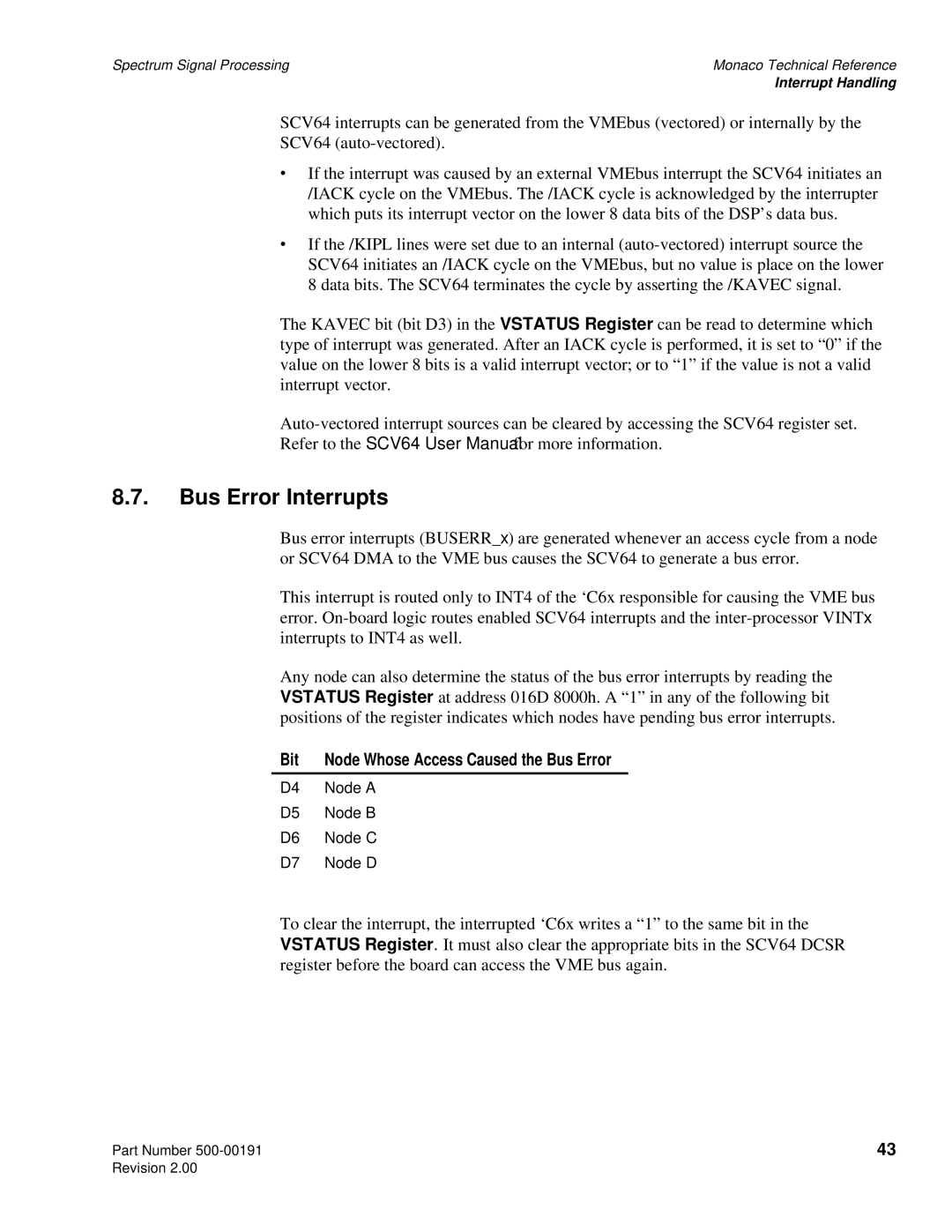Spectrum Signal Processing | Monaco Technical Reference |
| Interrupt Handling |
SCV64 interrupts can be generated from the VMEbus (vectored) or internally by the
SCV64
∙If the interrupt was caused by an external VMEbus interrupt the SCV64 initiates an /IACK cycle on the VMEbus. The /IACK cycle is acknowledged by the interrupter which puts its interrupt vector on the lower 8 data bits of the DSP’s data bus.
∙If the /KIPL lines were set due to an internal
The KAVEC bit (bit D3) in the VSTATUS Register can be read to determine which type of interrupt was generated. After an IACK cycle is performed, it is set to “0” if the value on the lower 8 bits is a valid interrupt vector; or to “1” if the value is not a valid interrupt vector.
Refer to the SCV64 User Manual for more information.
8.7.Bus Error Interrupts
Bus error interrupts (BUSERR_x) are generated whenever an access cycle from a node or SCV64 DMA to the VME bus causes the SCV64 to generate a bus error.
This interrupt is routed only to INT4 of the ‘C6x responsible for causing the VME bus error.
Any node can also determine the status of the bus error interrupts by reading the VSTATUS Register at address 016D 8000h. A “1” in any of the following bit positions of the register indicates which nodes have pending bus error interrupts.
Bit Node Whose Access Caused the Bus Error
D4 Node A
D5 Node B
D6 Node C
D7 Node D
To clear the interrupt, the interrupted ‘C6x writes a “1” to the same bit in the VSTATUS Register. It must also clear the appropriate bits in the SCV64 DCSR register before the board can access the VME bus again.
Part Number | 43 |
Revision 2.00 |
|
